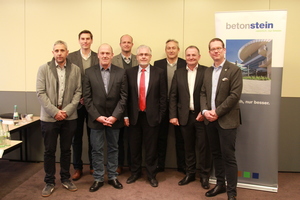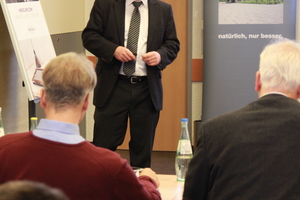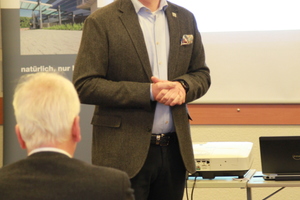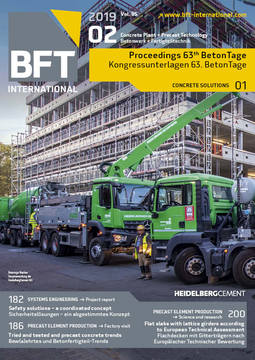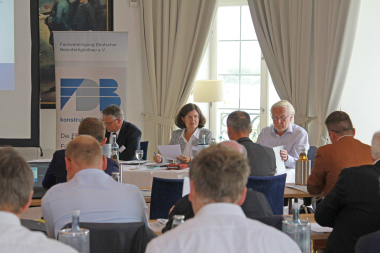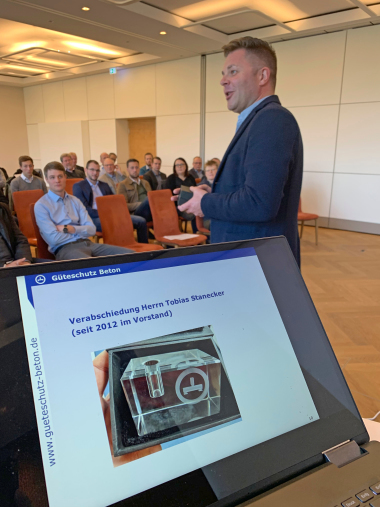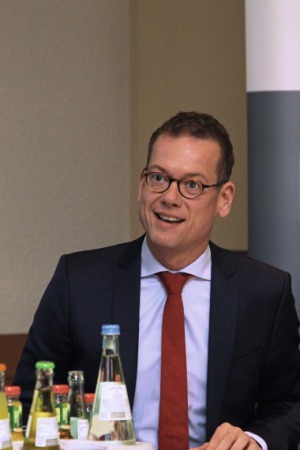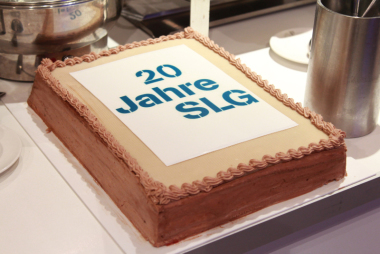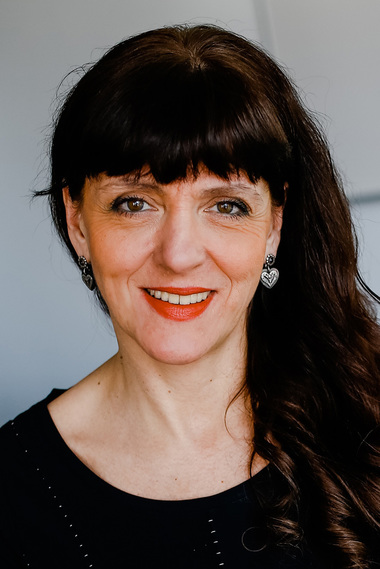General Meeting 2018: New Executive Board and
Increase in Membership Fee
The General Meeting of the German Concrete Association for Roads, Landscaping and Garden Construction (SLG) on 15 November 2018 in Kelsterbach, Germany, began with a report on higher-ranking product-specific specialist work in 2018 and on the outlook for the specialist work planned for the year 2019.
Worthy of special note among the topics reported are SLG’s position on the intended revision of the guidelines on road and path construction “ZTV Wegebau” (Additional terms of contract for road and path construction). The Landscape Research, Development and Construction Society (FLL) wants to revise the body of regulations and guidelines and include construction methods with large ceramic stoneware tiles, which are becoming increasingly popular. The SLG is of the opinion that “Construction methods with ceramic products have no place in a body of rules and regulations on road and path construction, as tile laying is a specialist trade.” The debate on this is currently highly contentious and the SLG intends to closely follow the work on the body of rules and regulations.
The cooperation project on Principles of Assessment, in which representatives of 16 SLG member companies and 13 expert assessors participate, also began in 2018. At the opening meeting in Fulda, Germany, two working groups were formed on the topics of “Edge spalling, voids, breakouts, cracks and scratches” and “Fluctuations in color and texture.” The objective of the joint project is to prepare “… uniform bases for assessing concrete products for roads, landscaping and garden construction, as well as surfacing elements made of such products.”
In 2019, the SLG will offer, among others, workshops on the topic of “Color loss in concrete products,” after the first three events on this topic in 2018 were in good demand. The SLG will also follow the progress of the work of the BIM task force of the Landscape Research, Development and Construction Society (FLL) as well as that of the task force BIM in Landscape Architecture of BuildingSmart-AG, to prepare for a possible BIM association topic on concrete products used in roads, gardens and landscaping.
New membership fee regulation
The Executive Board had already discussed the necessity of revising the membership fee regulation with the SLG member companies one month before the meeting of members and had prepared a proposal for this. Reason: on the one hand, the need for continued high-quality association work is expected; on the other, it is expected that the number of members will remain constant or possibly decrease in future as a result of mergers, which would have negative effects on the overall volume of membership fees and, accordingly, on financing association work.
The General Meeting in Kelsterbach followed the arguments of the Executive Board and accepted the revised member fee regulation by majority vote. The new regulation provides, among others, for the following: by adhering to the principle of the turnover groups – i.e., belonging to the group and the amount of contribution to the member fee are calculated based on the amount of the annual turnover of an SLG member company – the number of turnover groups is increased from eight to eleven, enabling a more precise differentiation and calculation of the fees. The new fee regulation provides the SLG with a larger amount from the member fees for its work. The fees for extraordinary members were not increased.
The budget closure for the year 2017 as well as the budget for 2019 were also unanimously adopted by the General Meeting. The members also unanimously approved the actions of the Executive Board and the Management.
New Executive Board, new auditors
The Annual Meeting then elected the Executive Board for the next three years. Chairman Florian Klostermann was again unanimously elected in his function, as was Deputy Chairman Frank Diegmüller and the remaining Board Members Helge Koll, Johann Socher, Johannes Rüsing, Thomas Aicheler and Martin Kronimus. Newly elected to the Executive Board – also unanimously – was Andreas Schlemmer, Managing Director at the location in Ehl in Kruft, Germany.
“Thank you for your trust. We greatly enjoy this,” said Klostermann to the SLG members.
The auditors were furthermore newly elected, now that Monika Ruf of Ruf Baustoffwerk, Schnelldorf, Germany, was no longer available, after serving 20 years in this position. Dr. Johannes Schrenk, Technical Director of Jakov Stockschläder GmbH & Co. KG in Ochtendung, Germany, and Jürgen Rendgen of Kann Baustoffwerke are now the new auditors.
The next General Meeting has been scheduled to take place on 14 November 2019. The venue will be made known later.
Text: Christian Jahn, M.A.

